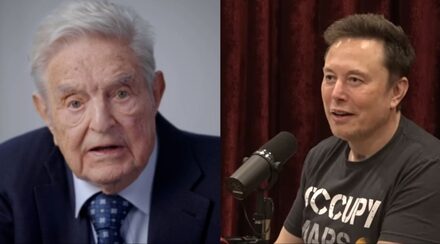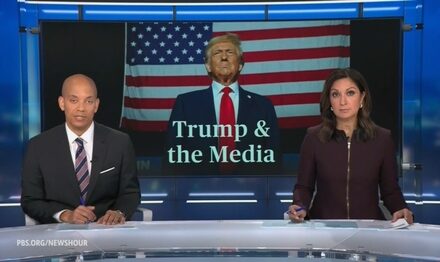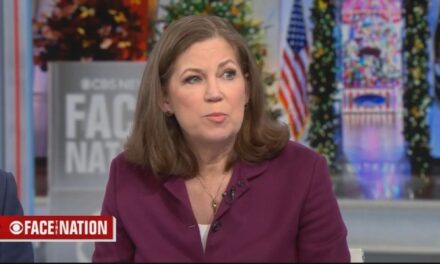We support our Publishers and Content Creators. You can view this story on their website by CLICKING HERE.
The Biden White House snuck in a press briefing Friday afternoon amid the House speaker vote hullabaloo and it had the predictable tone of senioritis with networks reaching deep into their bench for correspondents and producers willing to listen to Karine Jean-Pierre stammer and stumble her way through process questions about Biden’s final days in office, Biden blocking the sale of U.S. Steel, and the Islamic terror attack in New Orleans.
Thankfully, Fox’s Lucas Tomlinson came ready with a probing question, but Jean-Pierre chose to ignore it:
KJP ducked this question from Fox’s @LucasFoxNews Tomlinson as she left the Briefing Room: “Does the President still consider white supremacy the greatest terrorist threat to the United States?” pic.twitter.com/fDdWGB0n4x
— Curtis Houck (@CurtisHouck) January 3, 2025
The comments in question Tomlinson was referring? Here was Biden on 1, 2021 in Tulsa, Oklahoma: “According to the intelligence community, terrorism from white supremacy is the most lethal threat to the homeland today. Not ISIS, not Al-Qaeda, white supremacists.”
Biden also made the claim on October 21, 2021 at the Dr. Martin Luther King, Jr., Memorial in Washington D.C.: “According to the United States intelligence community, domestic terrorism from white supremacists is the most lethal terrorist threat in the homeland.”
He also said this on May 13, 2021 at Howard University’s commencement: “The most dangerous threat to our homeland is white supremacy.”
A few minutes earlier, we were subjected to this softball from the left by a CNN producer: “President Biden has staked his presidency on the preservation of democracy and has commemorated January 6th in different ways every year. What, if anything, will he do to commemorate the anniversary on Monday and in that context, does he still believe Donald Trump is a threat to democracy?”
NBC’s Kelly O’Donnell also had to make part of her turn with Jean-Pierre about Donald Trump, seeming to suggest Biden should do something about the level of intelligence access afforded to the President-Elect (click “expand”):
O’DONNELL: President-Elect Trump had communicated on his social media some inaccurate information related to New Orleans early on. Is the President at all concerned about the flow of information and briefing and access to whatever intelligence or whatever he might need in terms of this transition. Are you — is he comfortable with the information flow to the President-Elect on matters like this?
JEAN-PIERRE: I mean, look, and I’m actually glad you asked this question because one of the things that you all do as a — uh — um — a journalist — journalist body is that you were able to fact check and say that what was stated — uh — the President-Elect was — uh — simply false, and I think that is important — right — which is why we respect — uh — uh — the — the hard work that all of you do. As it relates to the President and the information that he gets, obviously that’s something for ODNI if it’s — if it’s related to intelligence and specific information in that nature. I’m not going to speculate beyond that and I’m just going to leave it there.
On the more productive front, CBS sent Homeland Security & Justice reporter Nicole Sganga and she was the only reporter to ask about the Chinese hack of the Treasury Department:
CBS’s @NicoleSganga: “[T]here have been reports that Chinese government hackers have reached a really sensitive office within the U.S. Treasury. OFAC, of course, administers economic sanctions. What more can you tell us about the scope of this and what information has been… pic.twitter.com/H39Cifk0AS
— Curtis Houck (@CurtisHouck) January 3, 2025
Most of the questions concerned Biden’s block of Japanese steelmaker Nippon from buying U.S. Steel (which had bipartisan support, including from Trump). NPR’s Franco Ordoñez asked two important questions about whether Biden would feel responsible if U.S. Steel turns around and lays off workers and/or shutters factories (click “expand”):
ORDOÑEZ: U.S. Steel has warned that that it may or likely would have to close steel mills if the deal fell through. To what degree did the President take that into consideration?
JEAN-PIERRE: So, I can say this, that we are confident — the President is confident that — uh — domestic steel and domestic steel workers are going to continue to thrive because of the work that he’s done, because of the commitment that he has had to — uh — to — uh — to this industry. As I said at the top, this is the strongest — it is — it’s in its strongest — the steel industry is the stronger than that it’s been in years because of what the President has been able to do, and you think about manufacturing investment. You think about tariffs on Chinese steel imports. That’s [sic] has made the industry stronger, those actions that the President has taken. You see more than 100 new steel and iron mills have opened since the President took office, so we’re very confident that this is an industry that’s going to continue to thrive.
ORDOÑEZ: If — if there are — if there are mills that are closed, if there are layoffs, would the president need to take some responsibility for that?
JEAN-PIERRE: I — I mean, that’s — that’s a hypothetical. I’m not going to get into hypotheticals. What I can say is the President has taken strong actions over the last four years. I just mentioned 100 new steel mills that were created. What he was able to do on Chinese steel imports — tariffs on Chinese steel imports that has made — uh — made that industry stronger, manufacturing investments, all of that has made that industry stronger and so, we believe it’s going to continue to thrive. I’m not going to get into a hypertheticals [sic] from here. Obviously, the President — uh — took — took this decision — uh — really — uh — you know, he — he really took it seriously — uh — and made a decision on behalf of — on behalf of the American people, and that’s how he came to this decision. Obviously, this is a President that has had a lot of — a lot of focus and wanting to continue to make sure we uplifted — uh — certainly union workers, and that’s what you’ve seen from this President.
To see the relevant transcript from the January 3 briefing (including O’Donnell’s questions to Jean-Pierre about U.S. Steel), click here.

 Conservative
Conservative  Search
Search Trending
Trending Current News
Current News 





